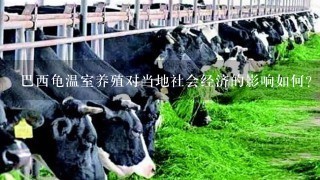巴西龟温室养殖对当地社会经济的影响如何?

Answer:
Positive Impacts:
- Employment creation: The shrimp farming industry creates jobs for local residents, including fishermen, farmers, and support staff.
- Income generation: Shrimp farming is a significant source of income for many families in rural areas.
- Food security: Brazil is a major producer of shrimp, and the industry contributes to the country's food security.
- Foreign exchange earnings: Brazil exports shrimp products, generating foreign exchange earnings that can be used to boost the country's economy.
- Tourism: The shrimp farming industry can attract tourists to the region, boosting local tourism revenue.
Negative Impacts:
- Environmental degradation: Shrimp farming can have a negative impact on the environment, including habitat loss, water pollution, and the use of harmful chemicals.
- Overfishing: Overfishing of shrimp can deplete the fish stock and threaten the sustainability of the industry.
- Pollution: Shrimp farming can generate pollution in the form of waste and runoff.
- Social conflict: Shrimp farming can be a source of conflict between local communities and the fishing industry.
- Dependence on foreign inputs: Brazil relies heavily on imported inputs for shrimp farming, which can be subject to supply disruptions or price fluctuations.
Overall, the positive impacts of shrimp farming on the local economy outweigh the negative impacts for the following reasons:
- The industry creates jobs and generates income for many families.
- It contributes to food security and exports valuable products.
- It can attract tourists and boost local tourism revenue.
However, it is important to address the environmental and social impacts of the industry to ensure its sustainability.





































































